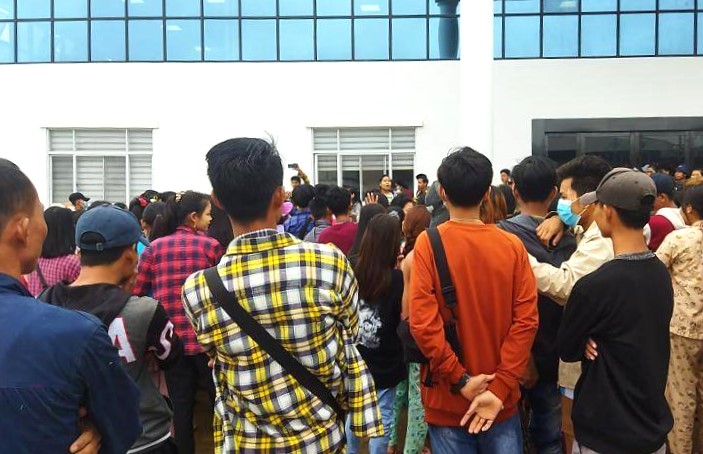Some 500 factory workers are on strike in Yangon, Myanmar, demanding a return to the job for colleagues who joined them in seeking decent wages and working hours and a workplace free from violence and abuse. Since the strike began in November, more than 50 workers have been fired. On November 22, the company brought in a group of 20 agents from the repressive military junta to threaten workers with physical violence to break the strike.
The members of the Federation of General Workers of Myanmar (FGWM) at the Charis Sculpture factory went on strike in November after the employer did not comply with the terms of a new contract negotiated in July.
The Hong Kong-owned Wise Unicorn Industrial Ltd., owner of Charis Sculpture, has an estimated annual revenue between $10 million and $50 million. Yet in October, when workers protested the employer’s refusal to pay overtime as promised, workers described being followed out of the factory, with two physically attacked.
After the workers went on strike inside the factory November 6 and boosted their list of demands to include dismissal of the director who they say assaulted two workers, the company fired 13 workers, including strike leaders.
“He dragged me and then pushed me with force. I fell down,” one worker told the union. (Names are not used to protect workers’ privacy.)
According to workers, the company says the workers were dismissed for violating the employment contract and “will be dealt with by existing law,” which workers say is an unlawful dismissal.
By November 11, workers were denied entry to the factory and nearly 350 workers remain outside on strike.
Standing Strong Despite Danger
Since the February 2021 military coup, thousands of people have been killed and many more imprisoned, with union leaders especially targeted. Workers—women in particular—took an early lead in the protests against the regime, with the country’s 450,000 garment workers especially active in organizing civil disobedience actions and shutting down factories.
Protests against low wages and poor working conditions remain risky. Yet workers at Charis, a manufacturer of cold-cast bronze, fine porcelain and alloy statues for export to Europe and the United States, are standing strong for their demands. They seek to receive family-supporting pay, including a daily wage of 9,000 Myanmar kyats ($4.28), up from 7,800 kyats ($3.71).
With overtime pay essential for basic support, they call for a 2,000 Myanmar kyats (.98 cents) per hour overtime wage, from the current 1,700 (.81 cents). The workers say many need overtime but the employer does not select them—and overtime pay is “important for workers because the basic wage is not enough,” said one worker.
Women workers especially face physical and verbal harassment, according to the union, which is seeking safe workplace conditions, an end to verbal and physical abuse and an environment with suitable temperature. They also are seeking employer-paid medical care and an end to wage cuts when workers take leave.

